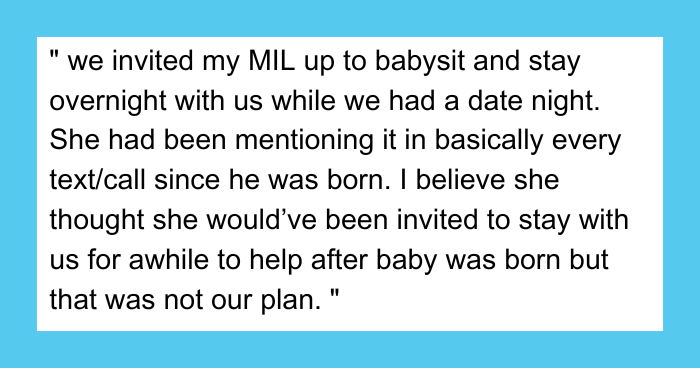MIL Left Our 3-Week-Old in a Boppy Overnight Without Feeding Him—Now We Can’t Trust Her Judgment
The expectation is relatively simple — when new parents decide that they will allow someone to care for their newborn, they want the caregiver as a priority to care for the baby safely. However, this couple’s trust in the MIL was broken after she was left alone looking after their children over night for the first time, and did something alarming. She not only left their 3-week-old baby to sleep on a boppy pillow—a well-known safety hazard—but she also allowed him to go without eating for 7 hours, completely disregarding the fact that newborns need to be fed every 2 to 3 hours.
The MIL then continued to defend herself, even when presented with the facts, claiming she “wasn’t sleeping” and the baby “slept well. Both parents have now come to the conclusion that MIL is not to be trusted alone with them, their child. Yet, as she keeps claiming she has done nothing wrong, they cannot be sure of what to do next.
Newborns are the most delicate and they need vigilant caretakers who will complete all their requirements
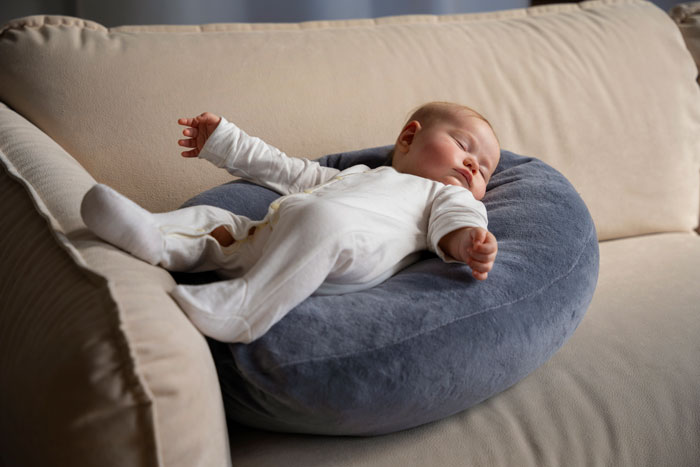
The poster’s mother-in-law kept begging to babysit their 3-week-old baby, so they finally gave in to her wishes
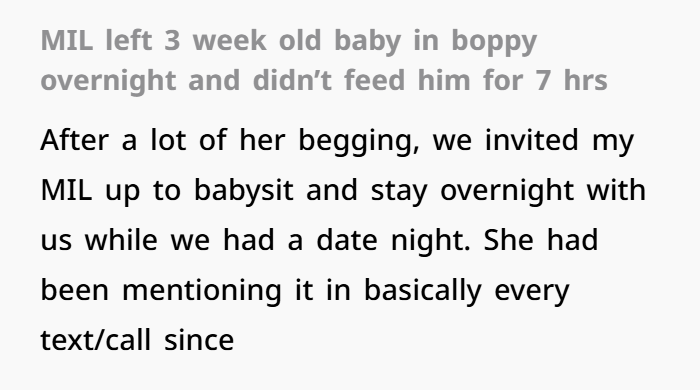
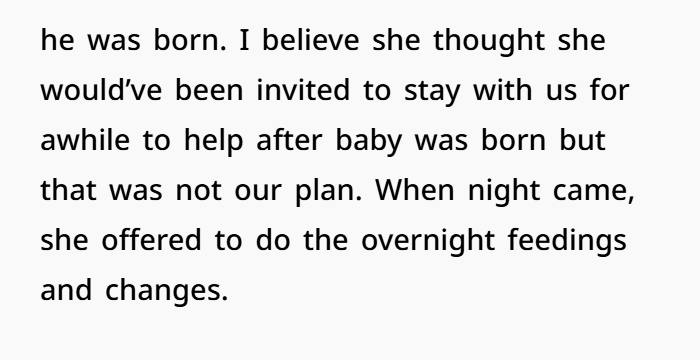
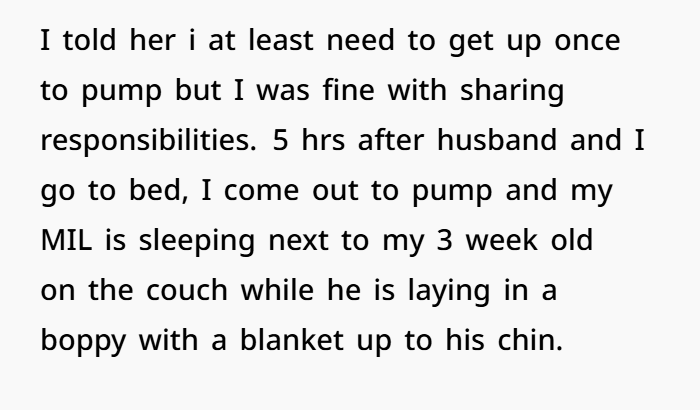
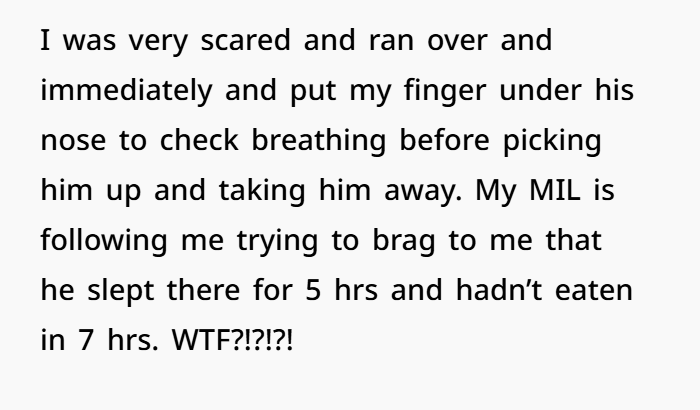
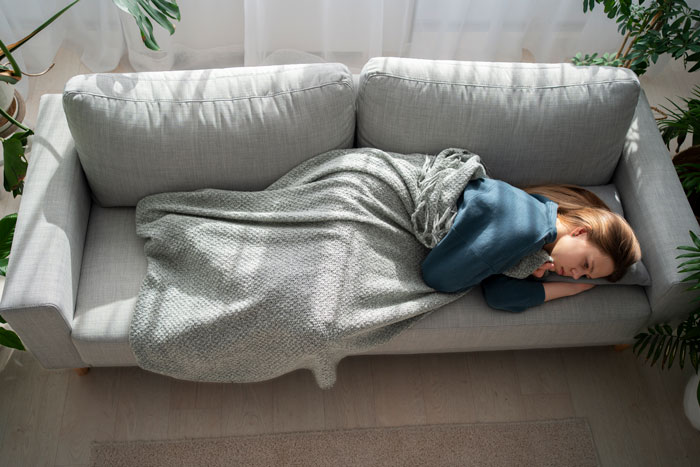
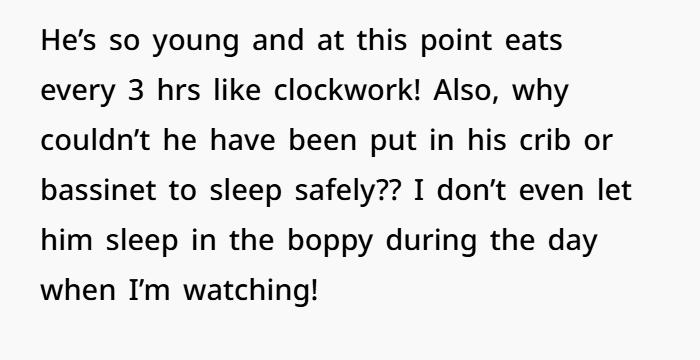
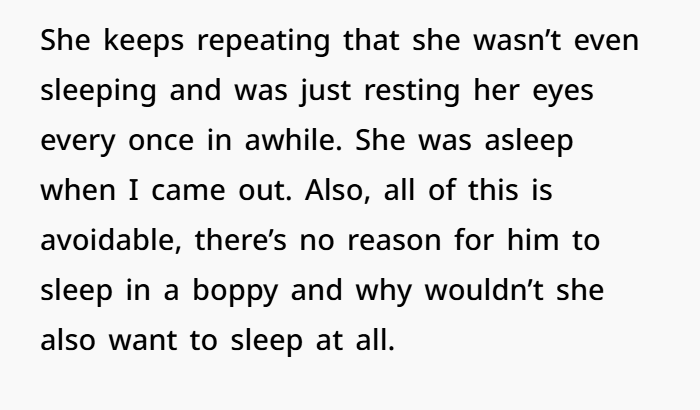
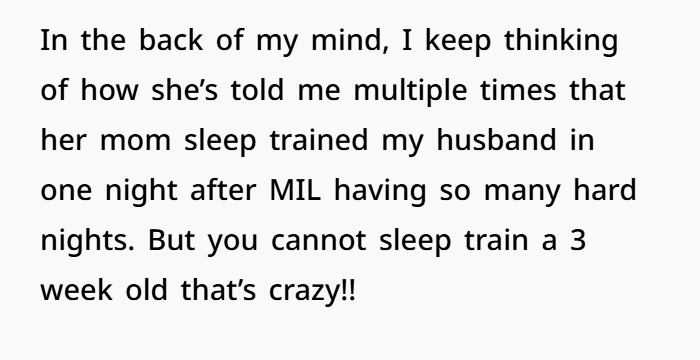
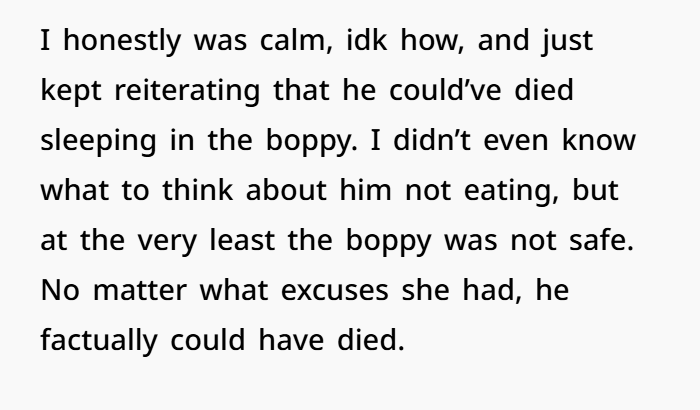
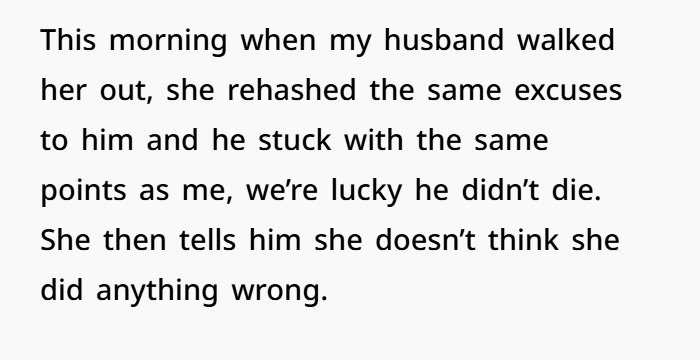
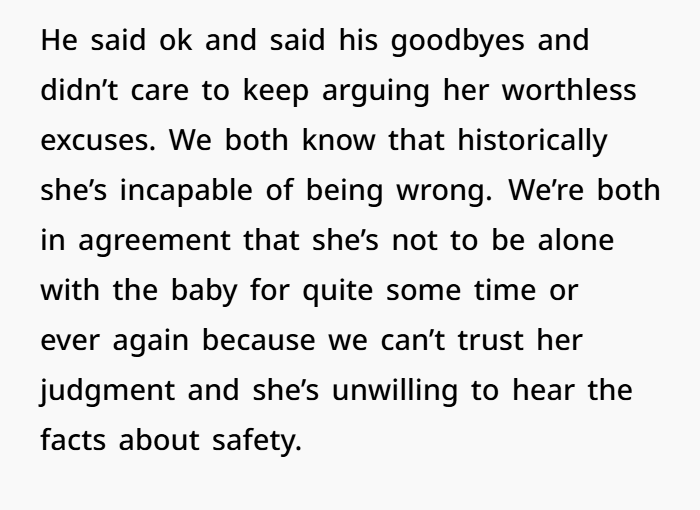
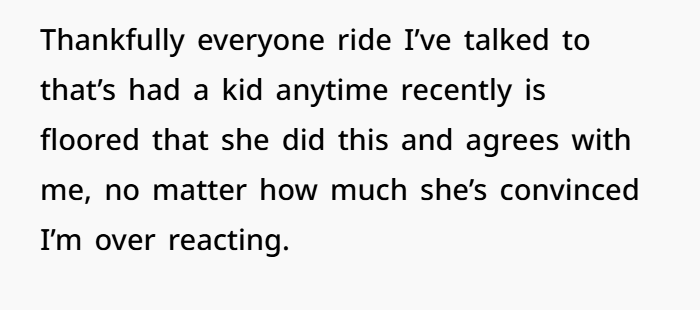
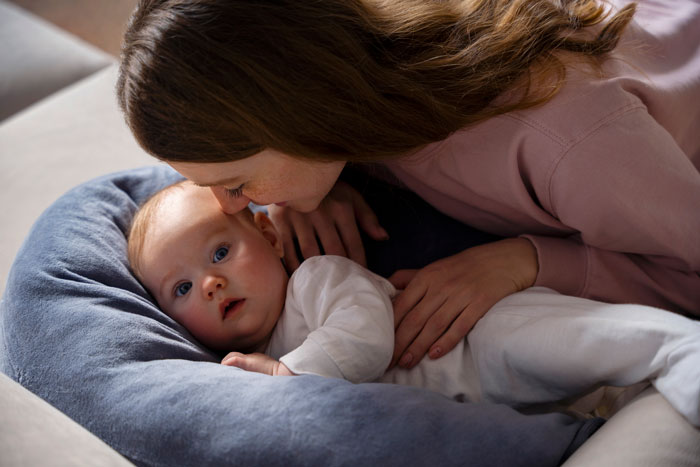
Why Sleep Safety and Newborn Feeding Schedules Matter
1. The Danger of Boppy Pillows and Unsafe Sleep Environments
While many people use boppy pillows for breastfeeding or for supervised daytime lounging, there isn’t a safe way to use a boppy pillow for infant sleep. Allowing them to sleep on their stomach on boppy pillows or any inclined surface is dangerous because that beautiful head of theirs bobbles around like a cork on a river, and it will not take much to end up face down and suffocated due to lack of neck strength that comes with youth, the Consumer Product Safety Commission (CPSC) told TODAY. They can get slumped over and close off their airflow, or roll into a position where they cannot breathe.
The American Academy of Pediatrics (AAP) is clear on safe sleep practices for infants under one year old:
- Babies must sleep on their backs on a flat, firm surface like a crib or bassinet.
- Soft items like pillows, blankets, and sleep positioners should be kept out of the sleep environment.
These recommendations specifically state never to leave a baby unattended in a boppy pillow and not to do so overnight, and allowing a 3-week-old to sleep in one overnight goes against every such guideline, therefore increasing the risk of SIDS and positional asphyxia.
2. Skipping Feedings: Why Newborns Need Regular Feeding Schedules
Most people do not realize newborns have to eat every 2–4 hours, even through the night, which can be an overwhelming adjustment, especially if you just had one and they are only 3 weeks old. They’re too small to hold much milk in their stomachs, therefore unable to gain weight, stay hydrated, and develop without frequent feedings. Here are the things that can happen when you do not feed a newborn for 7 hours:
- Low blood sugar (hypoglycemia): which can cause lethargy, irritability, and health complications.
- Dehydration: a serious risk for infants who need frequent milk intake.
- Failure to thrive: Regular feedings are critical for proper weight gain and growth.
The fact that the MIL saw a 7-hour stretch as “brag-worthy” shows a concerning lack of understanding of newborn care, particularly regarding feeding schedules.

3. Ignoring Safety Advice: The Danger of Dismissing Modern Parenting Guidelines
The MIL is exhibiting that classic attitude across generations of: “My kids survived — why shouldn’t yours? But a lot has changed in 40 or so years, especially in how we know about sleep safety and feeding practices.
Still, as experts from Safe to Sleep®, a national infant safety campaign, point out, most SIDS prevention approaches were created within the last 30 years. For instance:
- Back-to-sleep guidelines were officially introduced in the 1990s.
- Boppy pillows and similar products were recognized as unsafe for unsupervised sleep only recently after tragic accidents.
The opposition to these updated safety standards — despite being told precisely what the rules are — indicates a bigger issue: she puts her sect-like beliefs above the rules of the parents as well as the medical consensus.
4. Trust, Boundaries, and Protecting Your Child
The last thing a parent needs to have to deal with is family members ignoring safety protocols. A carer is someone who is by your side, and can help you navigate the waters of your mental illness, and a lot of work goes into building the relationship – trust is broken and difficult to fix. It is not overreacting for the parents to not allow MIL to be alone with the baby, they just want to protect their child.
Her having any unsupervised time with her grandchild may need to be contingent on MIL acknowledging her flaws and changing her behavior. Such boundaries are not punishment, they are guarding your child.
What Should the Parents Do Moving Forward?
- Have a Calm but Firm Conversation:I know feelings are raw, but complete dialog with MIL can help solidify boundaries. For instance: “We appreciate that you want to help, but it was really dangerous what happened. You won’t be babysitting alone until you can rest assured that you will be following the safety guidelines we set in place.
- Share Safety Resources: In some circumstances our senior generation is more likely to listen to a medical expert than a son or daughter giving advice. Post an article or other material from the AAP (or Safe to Sleep®) to reinforce the reason modern practices differ.
- Stick to Your Boundaries: If MIL keeps brushing everything under the rug, then you need to put the baby first and her feelings just come secondary. It could put a strain on your relationship, but protecting your kid has to be the number one priority.
- Find Reliable Caregivers: For occasional babysitters, reach out to friends, siblings, or professionals who will honour your parenting rules.
Folks were baffled by how careless the grandma sounded and couldn’t fathom her obsession with “sleep training” such a new baby
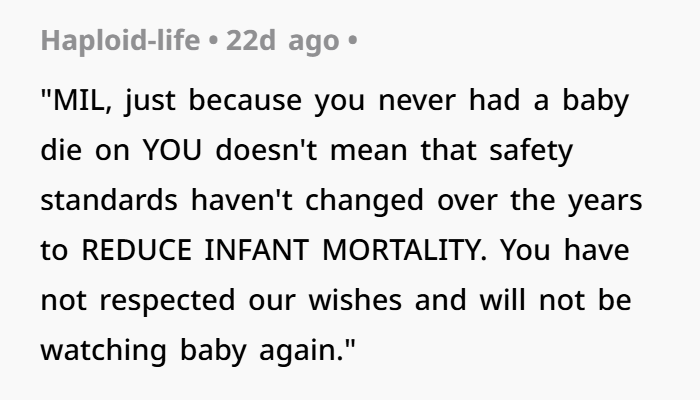
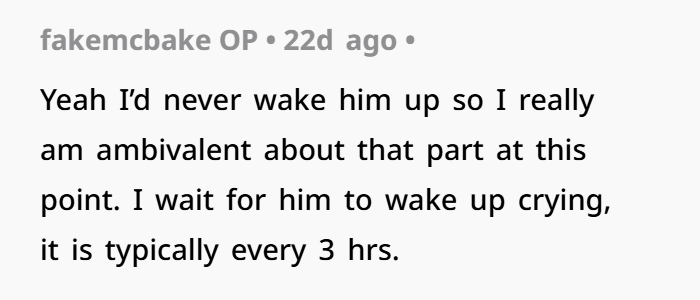
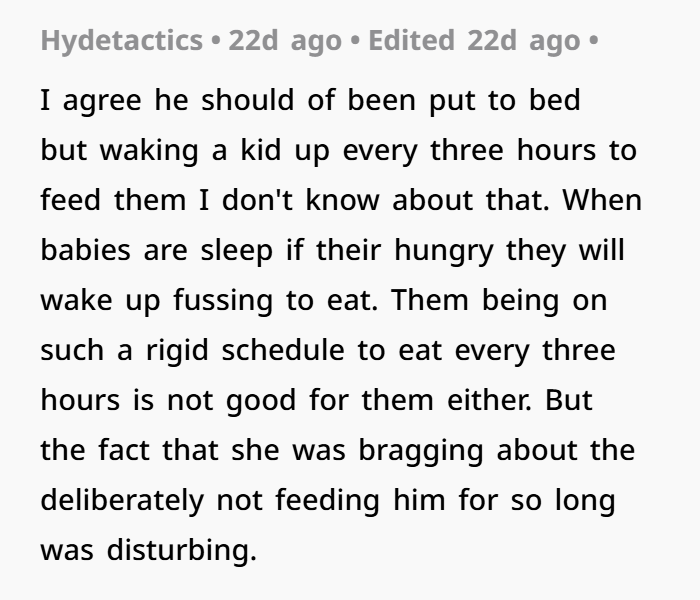
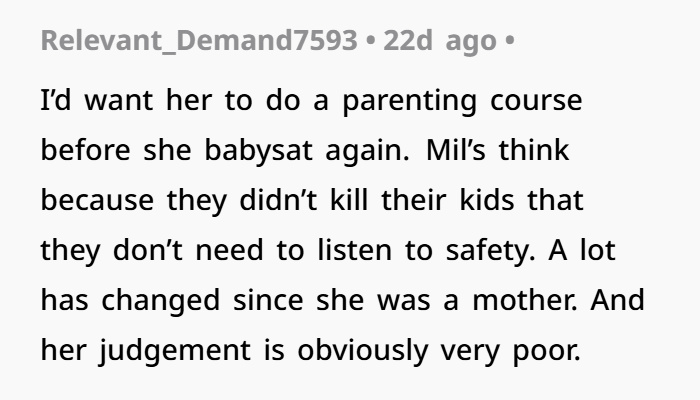

What the MIL has done–putting a 3w old in a boppy pillow, skipping overnight feedings, essentially alluding that she is the parent now, went behind his back despite clear boundaries–is dangerous on so many levels. She might have felt like she was “helping”, but her antiquated method was extremely dangerous for the infant. This is not an overreaction on the part of the parents.
Going forward, boundaries need to be reinforced, and caregivers must prioritize safety in order to prevent an incident like this from happening again. There is no compromise when it comes to your newborn health.

